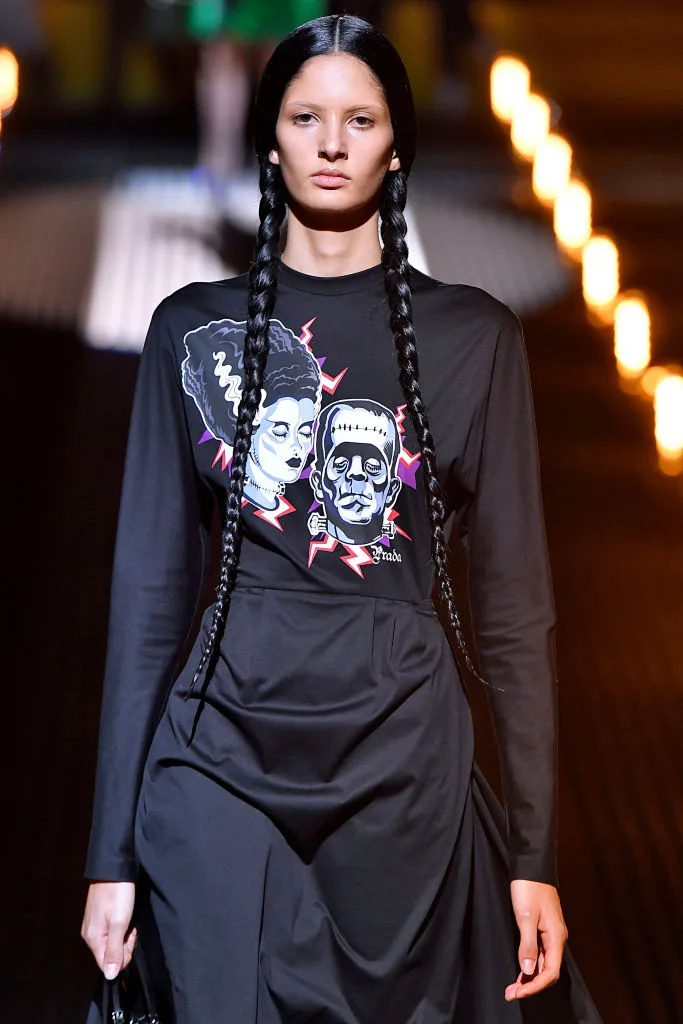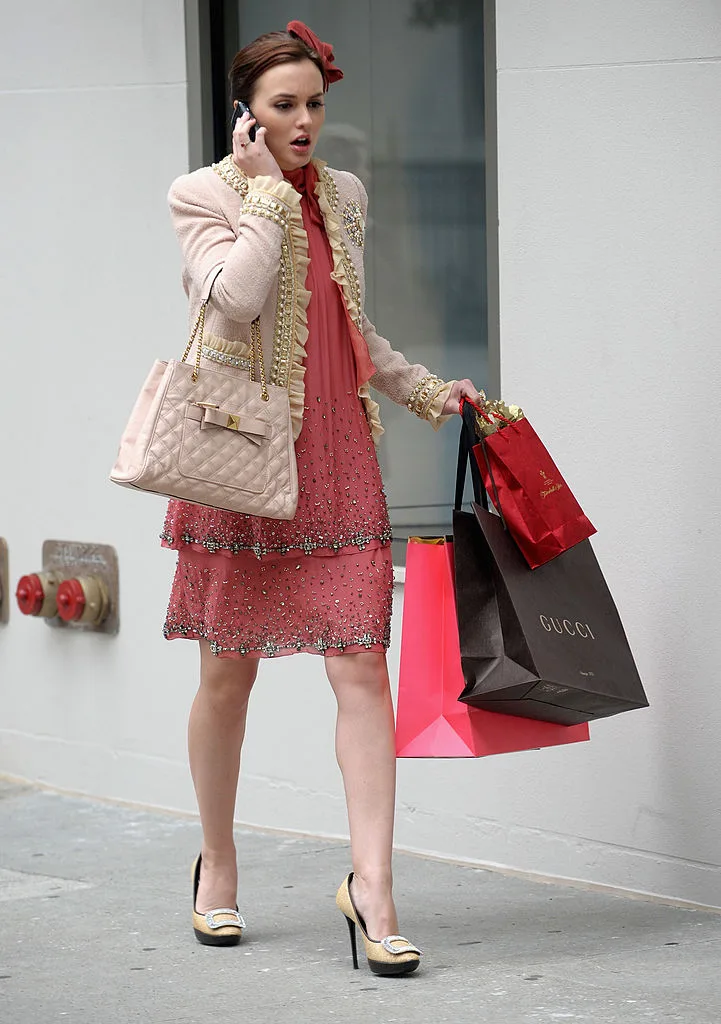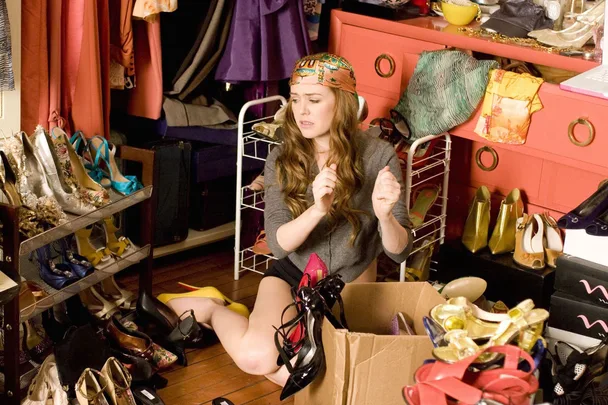Aussie fast-fashion label Collette by Collette Hayman – once the go-to for cash-strapped racegoers and wedding guests alike – fell into the hands of administrators this week.
Watch Below: Meghan Markle’s Australian Tour Wardrobe Featured Ethical Messaging
The 300 staff who run the accessory brand’s 140-strong store network are currently awaiting their fate as accounting firm Deloitte seeks investors to save it from collapse.
It’s just the latest in a string of high street Aussie fashion chains including Jeanswest, Harris Scarfe and Bardot which have recently called in the administrators or closed stores.
When it comes to trends, this is one the fashion industry is not eager to collectively champion.
But it’s not just Australian fashion facing challenges. Globally, the mood is darker than Prada’s Fall 2020 runway.

After a slight upturn since 2016 thanks to a surge in luxury consumerism, the industry’s economic growth has begun to slow, with forecasters predicting a sluggish 2020 and beyond.
Data compiled by consulting firm McKinsey in its 2020 State of Fashion report hints our desire for instant sartorial gratification is waning, with the value and mid-market sectors showing a stall in profit growth.
But why? There is definitely a growing consciousness among consumers – Millennials and Gen Z in particular – towards sustainability and the environmental impact our shopping choices have on the planet. More and more of us want to know how our clothes are made, and by whom.
There’s also the circular economy, with fashion rental companies such as Glam Corner solving our need for newness and novelty while reducing fashion landfill. But the rental category, while growing, still only accounts for a fraction of the market.
If the above factors aren’t solely responsible for this slowdown, the mystery behind fast fashion’s fallout could lie with a 19th century law.
The likes of H&M and GAP were unimaginable 150 years ago when Carl Menger proposed his law of Diminishing Marginal Utility.
When the Austrian economist explained his theory – that the more a product is consumed, the lower its perceived value becomes – in the 1870s, following trends was a pastime reserved for the elite.
Clothing was either made bespoke – if one could afford it – or bought second hand, repeatedly mended and worn until it literally fell apart.
Dressmaking was laborious and textiles were expensive, so clothing was as highly prized as a spring in the desert. Now we’re figuratively drowning in it.
Considering we can now go on a shopping spree during the ad breaks of Married at First Sight without even paying for it all upfront (thanks AfterPay), it’s no wonder our closets are brimming with cheap, barely-worn clothing, some still sporting tags.
ABC’s 2017 series War on Waste offered sobering statistics on our insatiable desire for fast fashion fixes, estimating Australian shoppers were sending about 36,000 kilos of impulse buys to landfill every hour.

And it’s this accessibility, this ability to partake in new trends so effortlessly, which may ultimately be behind our collective fashion fatigue and the industry’s economical funk.
“When we purchase a piece that’s been made ethically and sustainably and aligns with our values, it gives us a sense of pride and adds social credit, so we tend to value it more,” explains Neridah Morris, creative director of ethical fashion site Thread Harvest.
“It’s an outward expression of our inward values; it speaks to who we are as a person rather than just being visually appealing.”
So if we’re all getting bored of instant gratification, what next? Will fashion brands dump their monthly collection models back to the old fashioned twice-yearly seasonal collection offering? It’s unlikely. But if the forecast is correct, high street retail retailers can expect a period of economic pain as the zeitgeist shifts towards less consumption and more discerning buying habits.
Ms Morris predicts this trend towards conscious consumerism will only grow as more and more woke Generation Z-ers enter the workforce and shop with their Veja-clad feet.
“They’re far more values-minded and environmentally conscious; they want to know that what they buy hasn’t caused harm to people or the planet,” she says.
“They want to buy things that align with who they are, and if you’re a brand which isn’t thinking that way or positioning yourself that way, you won’t survive.”
Aussie fast-fashion label Collette by Collette Hayman – once the go-to for cash-strapped racegoers and wedding guests alike – fell into the hands of administrators this week.
Watch Below: Meghan Markle’s Australian Tour Wardrobe Featured Ethical Messaging
Aussie fast-fashion label Collette by Collette Hayman – once the go-to for cash-strapped racegoers and wedding guests alike – fell into the hands of administrators this week.
Watch Below: Meghan Markle’s Australian Tour Wardrobe Featured Ethical Messaging










